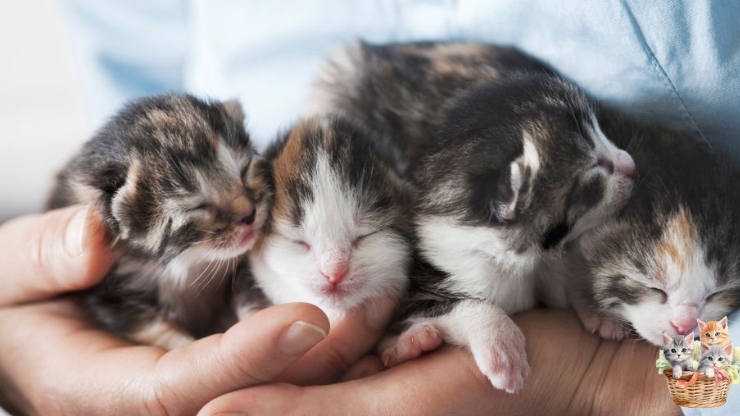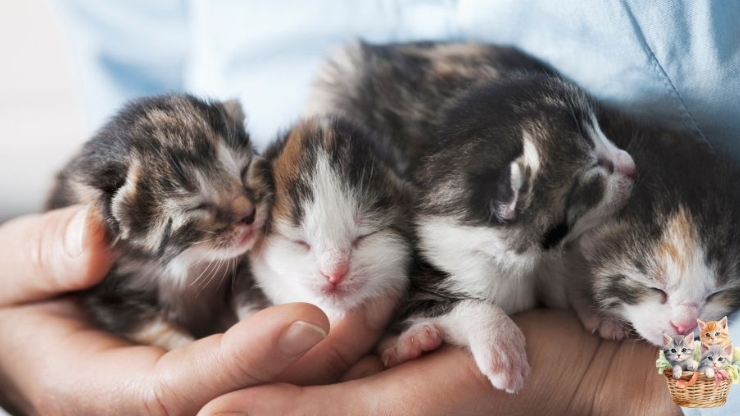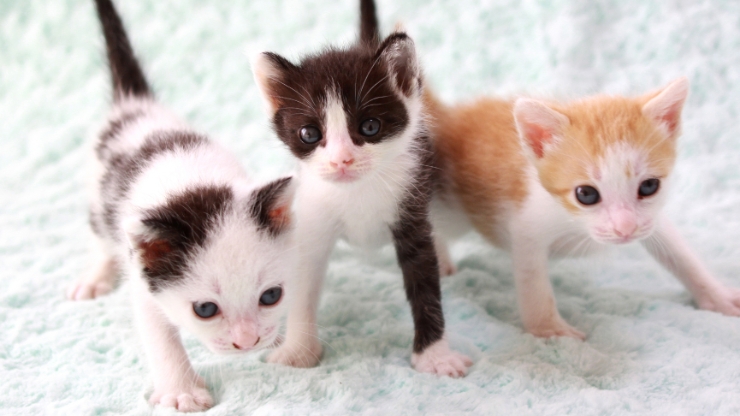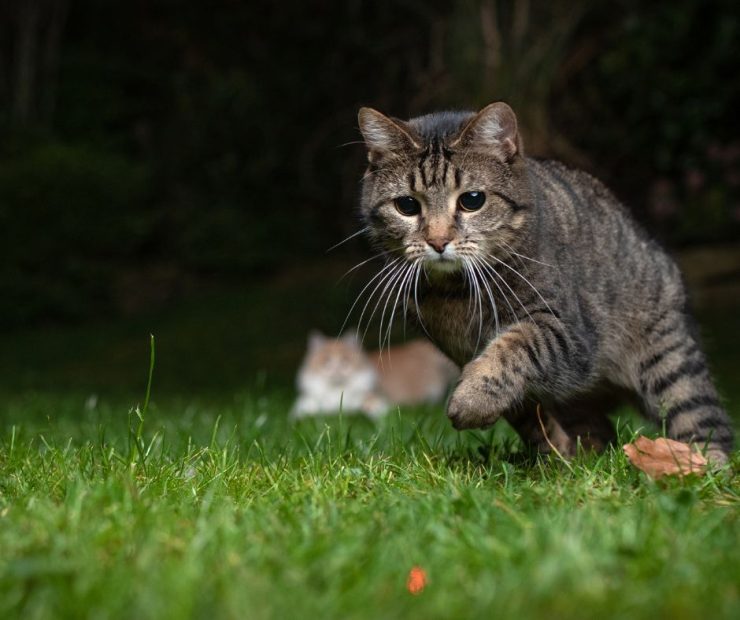Anxious humans dealing with newborn kittens are convinced that their slightest mistake cold spell disaster. A common anxiety producing question is how long you should wait before handling kittens. Many people believe that if you handle a kitten too early, the mother will stop feeding it and subsequently reject it. As a result, the kitten may starve. Therefore, you must wait until a kitten is almost ready to wean from milk before you handle it. Is this true? Or, could waiting to handle a kitten have unforeseen side effects? Just how early should a kitten be socialized with humans?

When I was growing up, there was an old wives tale about kittens. If you handle a cat too early, its mother will reject it, stop feeding it, and allow it to starve. Therefore, you must wait until the kitten is almost ready to wean before you start handling it. As a result of this belief, many people ended up having cats that never showed the kind of affection toward them they would have liked. This led to the further belief that “cats are different than dogs. They are aloof and they don’t like humans the way dogs do.”
Most people wait too long to handle new kittens. It is generally recommended to wait for 2 to 3 weeks before handling them. Some sources suggest up to 7 weeks. As we shall see, this is incorrect and not based on any real science.
Waiting Too Long to Handle Kittens
The truth is that most people wait too long to handle new kittens! Cats are more aloof compared to dogs. They do like to spend more time alone than dogs. But how they behave toward their humans has much to do with how young they are when they are handled by humans. This very important period in a house cat’s life is called the socialization period. The question is, how early should this be?
Surely, there is plenty of time to get a kitten socialized towards humans. As long as they are still in kittenhood they should be able to learn to trust and even be affectionate towards humans, seeking out their company.
Unfortunately, this is not true. Both cats and dogs have a certain period in which they are more easily socialized to humans. However, research has shown that this period in cats is much earlier than previously assumed, and quite curtailed.
What is the Prime Socialization Period For Cats?
The prime socialization period for cats is most often reported to be from 2 to 7 weeks of age. However, the earlier in this period that human socialization and habituation occur, the better. Why is this?
As author John Bradshaw reveals in Chapter 3 of his fascinating book, Cat Sense: How the New Feline Science Can Make You a Better Cat to Your Friend, every cat has to learn to be domestic.
Cats are not born attached to people, but they are born with the ability to attach to people. The problem is that, unlike humans, cats, as well as dogs, have a very short period of time in which to learn about their environment. This period is only a few weeks. Then, they must be ready to fend for themselves and deal with the challenges of their environment.

How Early Should You Handle Kittens?
Ideally, kittens should be handled by humans as early as possible. As a rule of thumb, begin handling kittens at around two weeks of age.
Research shows that cats aged three weeks that are introduced to many different people, handled, shown affection, and shown many different situations common to living with humans will show quite a bit more attraction to humans than cats aged seven weeks.
While the cat socialized at three weeks of age may be a lap cat, preferring to be with humans, coming when called, etc. the cat socialized at seven weeks may be a little less eager, jump off your lap quicker, and spend a bit more time on its own. In either scenario, the cat may be well-adapted and adaptable, but if you want a “lap cat” you need to socialize him or her as early as possible.
Of course, each cat is different and more factors determine a cat’s behavior than when it is socialized, and we cannot guarantee that any cat will be highly affectionate and want to spend a lot of time with humans.
During the first two weeks, a kittens world is all about touch, warmth, and smell. This makes your touch, your body warmth, and your scent the only ways a kitten can sense your presence and get to know you. The auditory system in cats develops later and then their sight still later. But they are born with tactile ability and the ability to navigate toward warmth, even before they can regulate their body heat properly. So, holding a kitten, letting it feel your warmth, and letting it get to know your scent will bond it not only to you but help it develop a connection to humans during these early and fragile weeks.
Will A Mother Cat Reject Her Kitten If Humans Handle It?
Regardless, handling a kitten earlier will likely help it be more socialized toward humans. But, what of the mother? Will she reject the kitten?
It is a myth that a mama cat will reject her kittens if they are handled by humans. While all cats are different, there is no reason to believe that a mother cat will automatically reject a kitten if you handle it. If the mother allows it, begin handling your newborn kittens within two to seven weeks of age.



